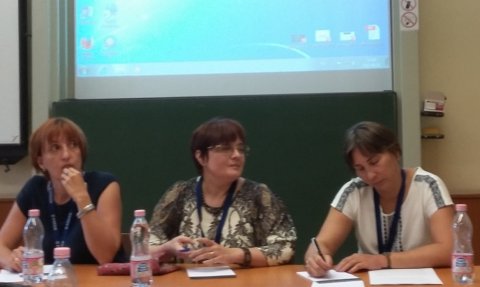In 2017, a series of scientific conferences devoted to different aspects of century-old revolutionary events take place in Russia and abroad. Historians, political scientists, culture experts and sociologists have been searching new models that would explain the reasons for massive protest behavior, interest in revolutionary ideology, forming of alternative models of state building and upbringing of a new person.
The Fifth Congress on World and Global History “Ruptures, Empires, Revolutions” held from August 31 till September 3 in Budapest (Hungary) was devoted to transnational measurement of revolutionary events and their influence on global economic, political and social processes. The prestigious scientific forum gathered 450 scientists from different countries; only two panels were organized by Russian research groups. One of theme blocks was proposed by SUSU scientists who are developing a project “Soviet cultural diplomacy under conditions of the Cold War” supported by the Russian Scientific Foundation.
Despite the traditional prevalence of westward topics at the Congress, the section “Splitting the Worlds, Bridging the Gaps: Cultural Diplomacy from 1917 to 1991” gathered an interested audience.
.jpg)
The speech of associate professor of the SUSU Department of Domestic and Foreign History Yulia Khmeleva was devoted to the activity of the American Relief Administration’s aid to starving Russians, which the contributor considered as an experience of U.S. public diplomacy in the Soviet country. Head of the Department of Domestic and Foreign History Olga Nikonova presented results of studying Soviet cultural diplomacy in the countries of Central and Eastern Europe in the late Stalinism period. The project leader, senior research scientist of SUSU Oksana Nagornaya analyzed the influence of revolutionary upheavals of 1956 and 1968 in socialist camp on concepts, structures, and tools of Soviet cultural diplomacy. A member of the University of Turku (Finland) Koivunen reconstructed a not-implemented at the USSR project of global exhibition, which was planned to be held in Moscow in 1967, and the reasons for refusal.
In her commentary, a notorious researcher of the Cold War’s cultures Marsha Siefert (CEU, Budapest) emphasized the importance of further discussions on criteria of cultural diplomacy’s effectiveness, on correlation of source and research terminology, the study of cultural diplomacy at a biographic level. As Siefert pointed out, intermediate results of research prove high scientific potential of the South Ural historians’ project.




